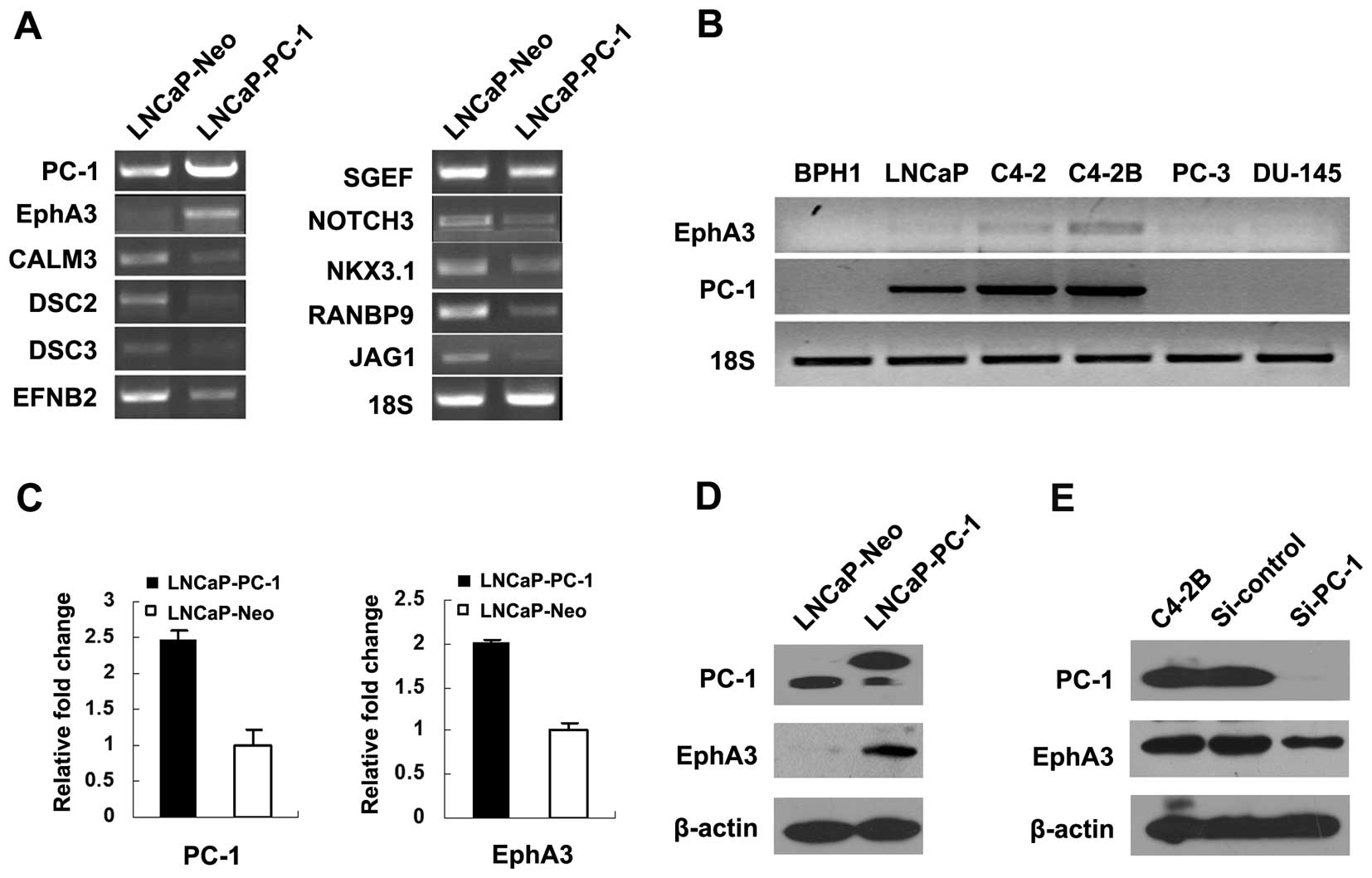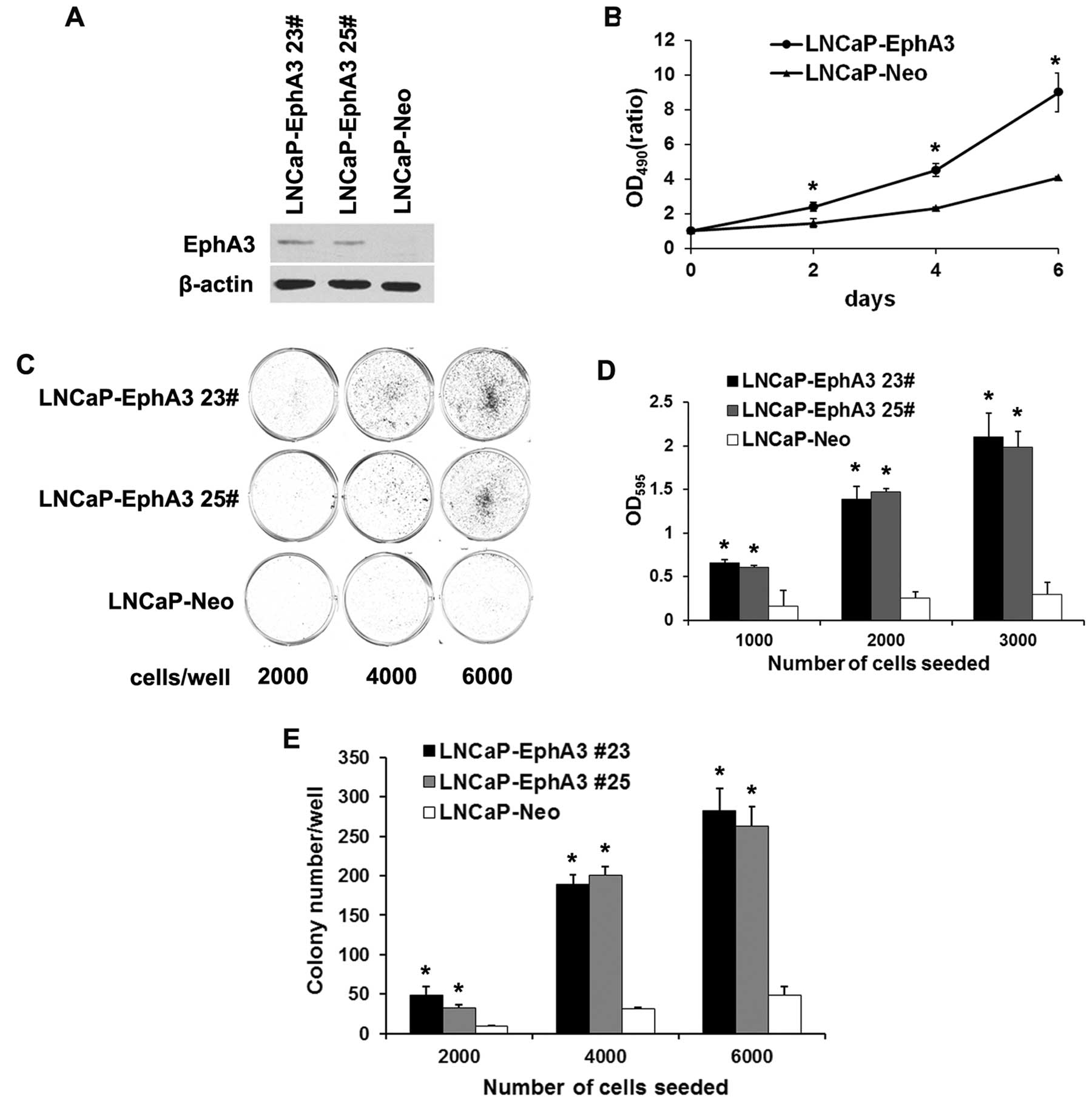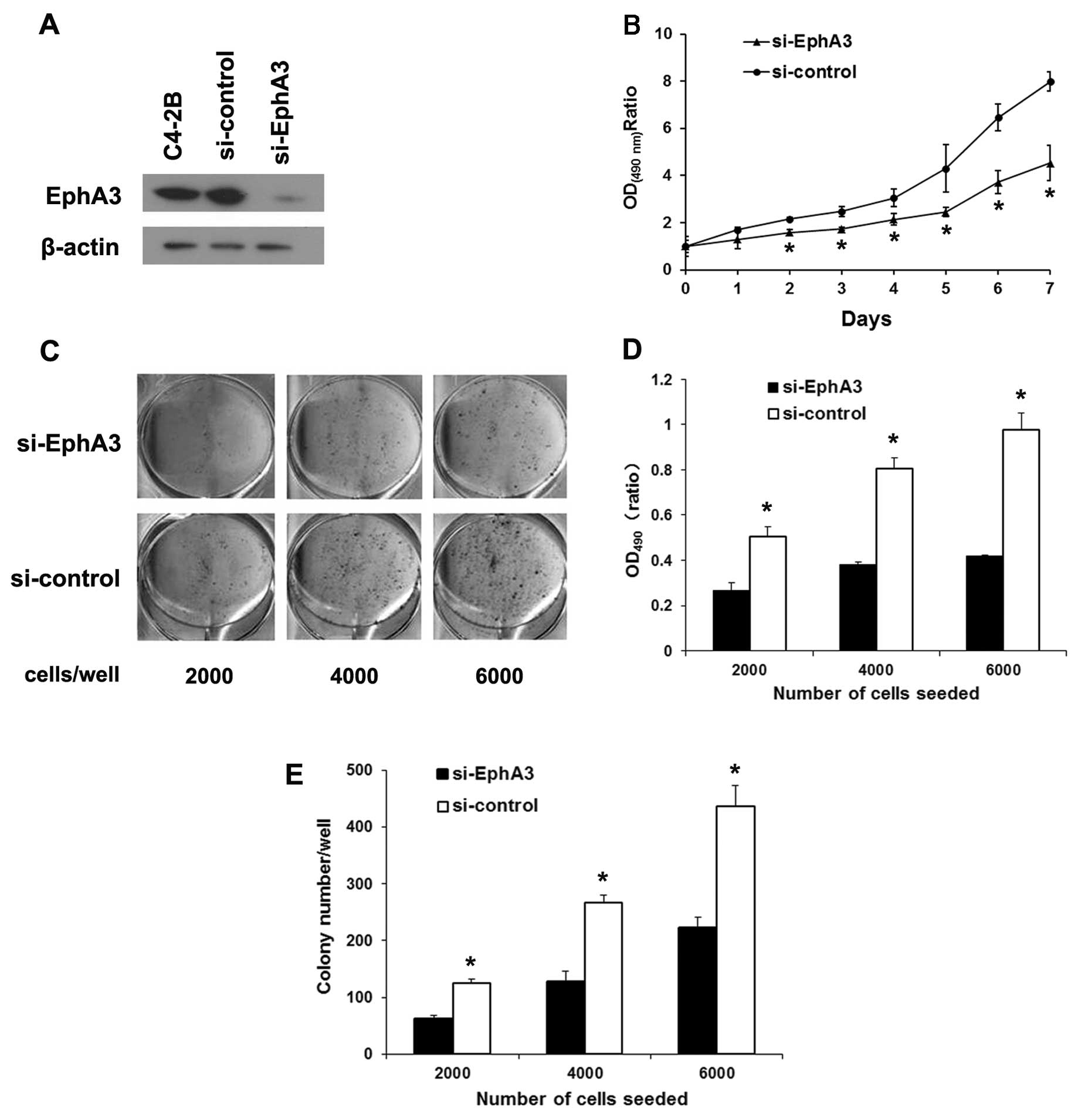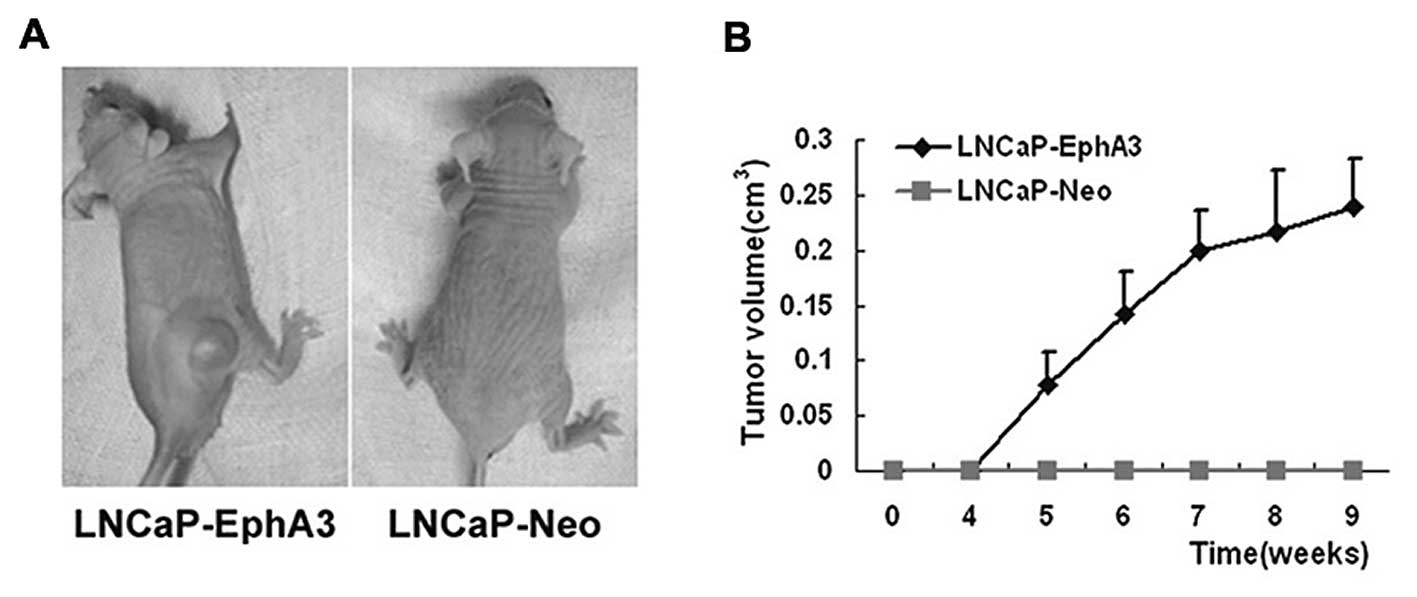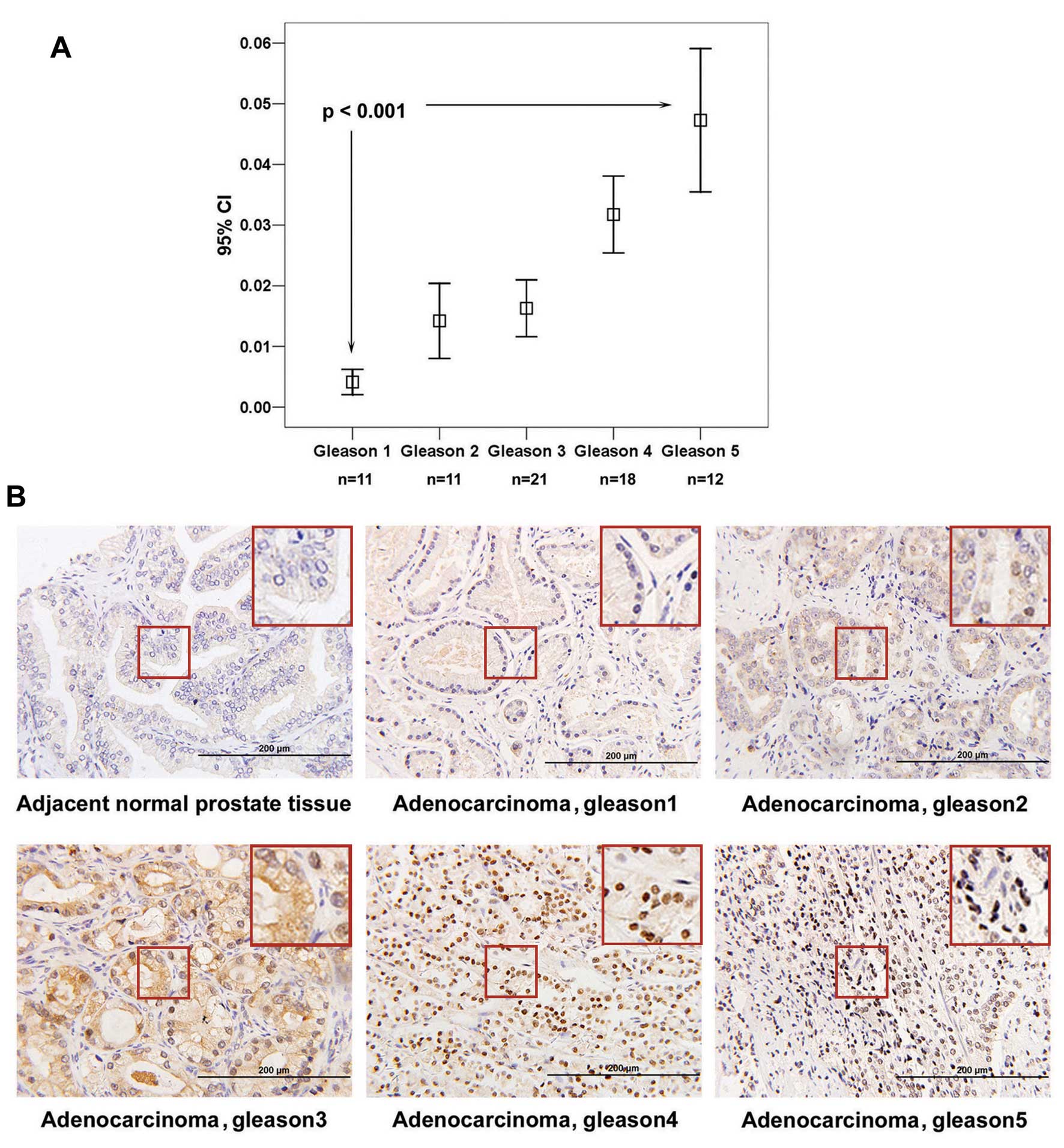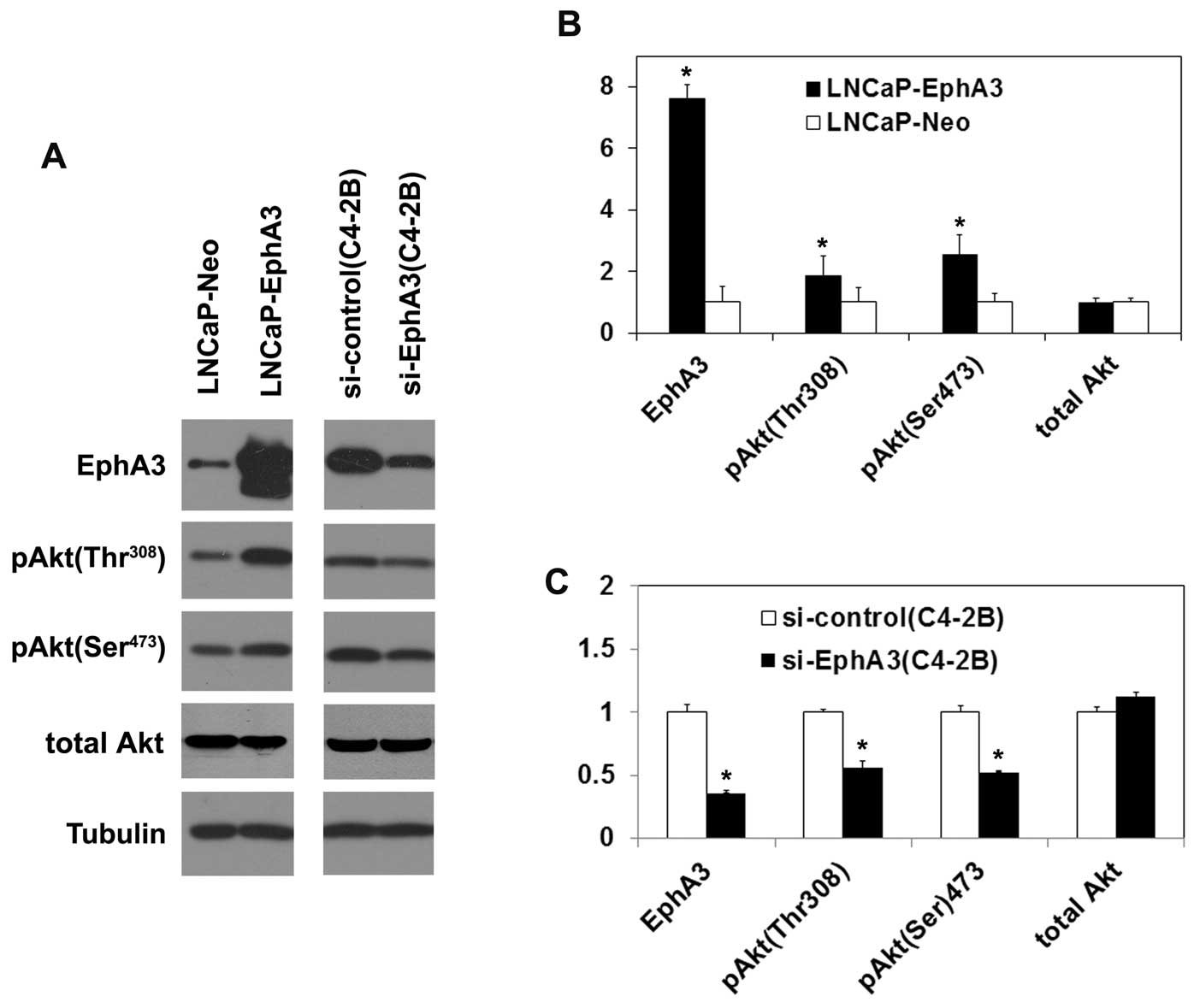|
1
|
Jemal A, Bray F, Center MM, Ferlay J, Ward
E and Forman D: Global cancer statistics. CA Cancer J Clin.
61:69–90. 2011. View Article : Google Scholar
|
|
2
|
Baade PD, Youlden DR, Cramb SM, Dunn J and
Gardiner RA: Epidemiology of prostate cancer in the Asia-Pacific
region. Prostate Int. 1:47–58. 2013. View Article : Google Scholar : PubMed/NCBI
|
|
3
|
Wang R, Xu J, Saramaki O, et al: PrLZ, a
novel prostate-specific and androgen-responsive gene of the TPD52
family, amplified in chromosome 8q21.1 and overexpressed in human
prostate cancer. Cancer Res. 64:1589–1594. 2004. View Article : Google Scholar
|
|
4
|
Li L, Xie H, Liang L, et al: Increased
PrLZ-mediated androgen receptor transactivation promotes prostate
cancer growth at castration-resistant stage. Carcinogenesis.
34:257–267. 2013. View Article : Google Scholar
|
|
5
|
Zhang H, Wang J, Pang B, et al: PC-1/PrLZ
contributes to malignant progression in prostate cancer. Cancer
Res. 67:8906–8913. 2007. View Article : Google Scholar : PubMed/NCBI
|
|
6
|
Wang J, Zhang H, Liang RX, et al:
Identification and characterization of the novel human prostate
cancer-specific PC-1 gene promoter. Biochem Biophys Res Commun.
357:8–13. 2007. View Article : Google Scholar : PubMed/NCBI
|
|
7
|
Yu L, Shi QG, Qian XL, et al: PC-1
enhances c-myc gene expression in prostate cancer cells. Yi Chuan.
32:348–352. 2010.(In Chinese).
|
|
8
|
Wimmer-Kleikamp SH and Lackmann M:
Eph-modulated cell morphology, adhesion and motility in
carcinogenesis. IUBMB Life. 57:421–431. 2005. View Article : Google Scholar : PubMed/NCBI
|
|
9
|
Wood LD, Calhoun ES, Silliman N, et al:
Somatic mutations of GUCY2F, EPHA3, and NTRK3 in human cancers. Hum
Mutat. 27:1060–1061. 2006. View Article : Google Scholar : PubMed/NCBI
|
|
10
|
Brantley DM, Cheng N, Thompson EJ, et al:
Soluble Eph A receptors inhibit tumor angiogenesis and progression
in vivo. Oncogene. 21:7011–7026. 2002. View Article : Google Scholar : PubMed/NCBI
|
|
11
|
Vearing C, Lee FT, Wimmer-Kleikamp S, et
al: Concurrent binding of anti-EphA3 antibody and ephrin-A5
amplifies EphA3 signaling and downstream responses: potential as
EphA3-specific tumor-targeting reagents. Cancer Res. 65:6745–6754.
2005. View Article : Google Scholar : PubMed/NCBI
|
|
12
|
Keane N, Freeman C, Swords R and Giles FJ:
EPHA3 as a novel therapeutic target in the hematological
malignancies. Expert Rev Hematol. 5:325–340. 2012. View Article : Google Scholar : PubMed/NCBI
|
|
13
|
Guan M, Liu L, Zhao X, et al: Copy number
variations of EphA3 are associated with multiple types of
hematologic malignancies. Clin Lymphoma Myeloma Leuk. 11:50–53.
2011. View Article : Google Scholar : PubMed/NCBI
|
|
14
|
Day BW, Stringer BW, Al-Ejeh F, et al:
EphA3 maintains tumorigenicity and is a therapeutic target in
glioblastoma multiforme. Cancer Cell. 23:238–248. 2013. View Article : Google Scholar : PubMed/NCBI
|
|
15
|
Hafner C, Schmitz G, Meyer S, et al:
Differential gene expression of Eph receptors and ephrins in benign
human tissues and cancers. Clin Chem. 50:490–499. 2004. View Article : Google Scholar : PubMed/NCBI
|
|
16
|
Singh AP, Bafna S, Chaudhary K, et al:
Genome-wide expression profiling reveals transcriptomic variation
and perturbed gene networks in androgen-dependent and
androgen-independent prostate cancer cells. Cancer Lett. 259:28–38.
2008. View Article : Google Scholar
|
|
17
|
Zhang D, He D, Xue Y, et al: PrLZ protects
prostate cancer cells from apoptosis induced by androgen
deprivation via the activation of Stat3/Bcl-2 pathway. Cancer Res.
71:2193–2202. 2011. View Article : Google Scholar : PubMed/NCBI
|
|
18
|
van Bokhoven A, Varella-Garcia M, Korch C,
et al: Molecular characterization of human prostate carcinoma cell
lines. Prostate. 57:205–225. 2003.PubMed/NCBI
|
|
19
|
Wu X, Gong S, Roy-Burman P, Lee P and
Culig Z: Current mouse and cell models in prostate cancer research.
Endocr Relat Cancer. 20:R155–R170. 2013. View Article : Google Scholar : PubMed/NCBI
|
|
20
|
Wu RQ, Li QM, Shi QG, Zhang H, Qian XL, Yu
L and Zhou JG: PC-1 can enhance transcription of EphA3, a member of
RTK family, in prostate cancer cells. Chin J Biochem Mol Biol.
25:633–639. 2009.
|
|
21
|
Jeong SJ, Pise-Masison CA, Radonovich MF,
Park HU and Brady JN: Activated AKT regulates NF-kappaB activation,
p53 inhibition and cell survival in HTLV-1-transformed cells.
Oncogene. 24:6719–6728. 2005. View Article : Google Scholar : PubMed/NCBI
|
|
22
|
Viglietto G, Motti ML, Bruni P, et al:
Cytoplasmic relocalization and inhibition of the cyclin-dependent
kinase inhibitor p27Kip1 by PKB/Akt-mediated
phosphorylation in breast cancer. Nat Med. 8:1136–1144. 2002.
View Article : Google Scholar : PubMed/NCBI
|
|
23
|
Vivanco I and Sawyers CL: The
phosphatidylinositol 3-kinase AKT pathway in human cancer. Nat Rev
Cancer. 2:489–501. 2002. View
Article : Google Scholar : PubMed/NCBI
|
|
24
|
Wicks IP, Wilkinson D, Salvaris E and Boyd
AW: Molecular cloning of HEK, the gene encoding a receptor tyrosine
kinase expressed by human lymphoid tumor cell lines. Proc Natl Acad
Sci USA. 89:1611–1615. 1992. View Article : Google Scholar : PubMed/NCBI
|
|
25
|
Wang R, Xu J, Mabjeesh N, et al: PrLZ is
expressed in normal prostate development and in human prostate
cancer progression. Clin Cancer Res. 13:6040–6048. 2007. View Article : Google Scholar : PubMed/NCBI
|
|
26
|
Li L, Zhang D, Zhang L, et al: PrLZ
expression is associated with the progression of prostate cancer
LNCaP cells. Mol Carcinog. 48:432–440. 2009. View Article : Google Scholar : PubMed/NCBI
|
|
27
|
Easty DJ and Bennett DC: Protein tyrosine
kinases in malignant melanoma. Melanoma Res. 10:401–411. 2000.
View Article : Google Scholar : PubMed/NCBI
|
|
28
|
Li QM, Wu RQ, Pan DR and Zhou JG:
Construction and analysis of EphA3 gene stable-expressed NIH3T3
cell model. Lett Biotech. 20:609–611. 2009.
|















